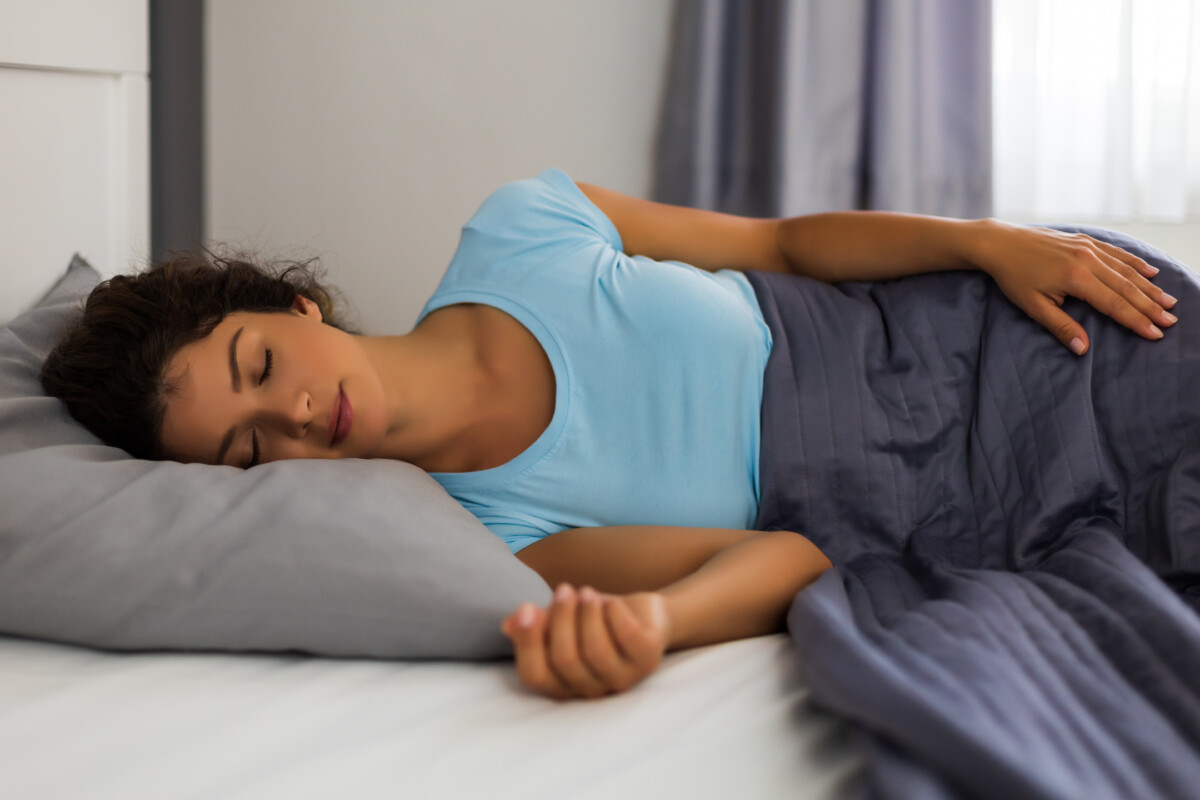Do Weighted Blankets Work?

Weighted blankets are the latest thing in DIY insomnia cures. These blankets are heavier than normal, commonly ranging from 7 to 20 pounds in weight. They cost between $100 and $300 and come in standard king, queen and twin sizes.
But do they work?
Given how recently they have become available, there has been little research regarding weighted blankets. However, a few studies have been done.
One study, published in the Journal of Sleep Medicine and Disorders, found that four out of five patients suffering from chronic insomnia were able to fall asleep more easily, sleep longer and wake up less frequently during the night when using a weighted blanket.
Another study done on children with ADHD found that sleeping with a weighted blanket helped decrease both the amount of time it took to fall asleep and the number of times the children woke during the night.
In a study done involving autistic children with severe insomnia, weighted blankets were also found to improve sleep.
Most people who sleep with a weighted blanket prefer one that is about a tenth of their body weight. However, weighted blankets are not necessarily safe for everyone. Patients with the following conditions should avoid them:
- Those who are too weak to lift and remove the blanket.
- Those who have obstructive sleep apnea
- Type II diabetics
- Those with breathing problems
- People with claustrophobia
Anyone with a chronic or serious health condition should consult with their healthcare provider before sleeping with a weighted blanket.
While there are weighted blankets specifically made for children, they should never be used on babies, toddlers or very small children.
The exact mechanism of how a weighted blanket improves insomnia is not known. One theory is that it brings back the memory of being in the womb, which activates the parasympathetic nervous system and helps patients feel safe and secure.
